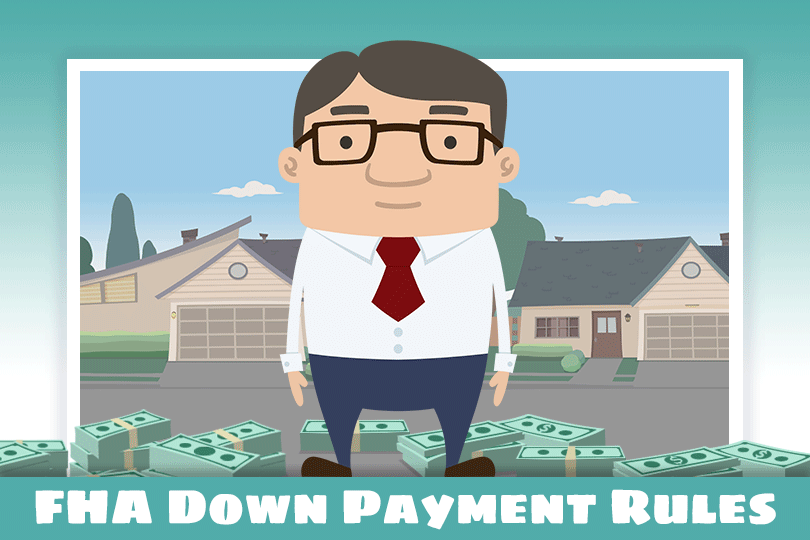Things to Know About Making an FHA Loan Down Payment
August 9, 2021
Lenders Need to Mitigate Risk
Making a sizeable down payment gives lenders peace of mind, knowing that a borrower would not part with a large amount of money if they did not intend to come through on the entire loan. Depending on the type of mortgage you apply for, the down payment requirement may vary. For most conventional loans, borrowers are generally required to pay 20% of the purchase price, whereas FHA loans have a low requirement of 3.5%. FHA-approved lenders feel more comfortable accepting this smaller amount since the loans are insured by the FHA, and the lenders are protected in the case of borrowers defaulting.
Private Mortgage Insurance
Even though most conventional loans come with the 20% minimum down payment criteria, there are borrowers who cannot meet that requirement. This does not always exclude them from being approved. In the same way the FHA charges a Mortgage Insurance Premium with their loans, conventional mortgage lenders require that any borrowers paying less than 20% toward the down payment must purchase Private Mortgage Insurance (PMI).
If you are considering a conventional mortgage, it is important that you understand how Private Mortgage Insurance works. While it helps you qualify for a loan that you could not otherwise afford, it does increase the cost of the loan itself. You can make a lower payment upfront, but the monthly PMI premium will be added into your monthly mortgage payments. Additionally, PMI does not protect you, it protects the lender from losses if you are unable to pay back the loan. In most cases, you will not have to make PMI payments for the life of the loan. Pertaining to the conventional loan, once you have built up more than 20% equity in your home, you can put in a request to have the monthly PMI charge dropped. Talk to your loan officer to make sure this is an option before you sign!
Down Payments and Interest Rates
While the amount of money you put down on a home may not affect the interest rate you receive from the lender, it does impact the amount of interest you pay over the life of the loan. Making a larger down payment means paying less in interest, since you are borrowing less money. Imagine that you are buying a $200,000-home with a down payment of $20,000. You would be paying interest on a $180,000 loan. (200,000 – 20,000). Whereas if you paid only $10,000 upfront, you’d be paying interest on a $190,000-loan instead.
Down payments are one of the most daunting factors of homebuying for many first-time buyers. Saving up such a huge chunk of funds is not always an affordable option for most people, and so they get stuck in a “renter’s trap.” While it can be a little overwhelming, it’s important for prospective homebuyers to do their research and learn about their options, including Down Payment Assistance Programs. Head to www.fha.com to for a comprehensive list of programs for each state.
------------------------------
RELATED VIDEOS:
Consider the Benefits and Risks of a Joint Loan
Borrowers Should Know About the Origination Fee
Everyone Needs to Pay Their Property Tax

FHA Loan Articles
December 10, 2024The FHA announced increased loan limits for 2025, providing those seeking FHA-insured mortgages after January 1st with increased purchasing power. In this article, we explore the key aspects of these limits and their implications for your homeownership goals.
When you are approved for an FHA-insured loan, the FHA guarantees a portion of the loan to the lender, lowering lender risk...
December 9, 2024The Federal Housing Administration (FHA) helps people buy homes, especially those buying for the first time or who might not have perfect credit. In 2025, there is good news for FHA borrowers. FHA home loan limits are going up.
In most places, the FHA loan limit for a single-family home in 2025 is $524,225. This is more than it was in 2024. However, in expensive areas, where houses cost more, the limit can be as high as $1,209,750.
December 5, 2024The Federal Housing Administration (FHA) has some ground rules regarding cash-out refinances. These rules are designed to protect both you and the lender, ensuring you have enough ownership of your home and reducing the risk of foreclosure. How long must you own your home before you can apply for FHA cash-out refinancing?
December 4, 2024When you think about owning a farm, do you dream of vast landscapes and thriving agricultural enterprises? Or are you looking for a quaint farm-style house to live in but not necessarily to start a new farming career?
Borrowers who want to buy a farm residence are in luck with the FHA loan program, which includes options to purchase farm residences.
November 27, 2024If you are new to the home loan process, you may wonder how your loan officer will interpret your application data. How lenient is the lender with issues related to debt, credit utilization, and related factors? We examine some key points, but remember that what follows is not financial advice. Always consult a finance or tax professional for the most current information.







